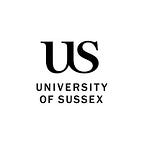“Their situations are so serious, yet there is so little help available”
Postgraduate law student Hassan Khan is among those volunteering at the new Sussex Migration Law Clinic, which gives free legal advice to refugees and asylum seekers in Brighton and Hove.
My family is originally from Pakistan, but we moved to Vancouver in 2002 when I was four. Most of my friends and family are there, and I studied there for my undergraduate degree in politics and criminology. I wanted a career in law, but I wanted to see more of the world. A friend recommended the University of Sussex. It was great advice as the course offers lots of external opportunities.
Initially I was looking to doing policy work around women’s rights or conflict zones and what happens to women’s rights in conflict zones. But with the volunteer work that I have done this year I am leaning more towards immigration law.
Before the Migration Law Clinic started, I helped out at Voices in Exile, a Brighton charity for refugees and asylum seekers and anyone who becomes destitute. I thought it would expose me to more international law, but what it has really done is show me the realities that some people face.
Their situations are so serious, yet there is so little help available. They have no one to turn to. Because of the cuts to legal aid, it falls on students, or charities, or volunteers to provide that help. But then you realise the limitations of what you can do. You can guide them to the right application form, or tell them who to call, but solutions aren’t immediate.
How to communicate with clients has been the most challenging aspect of the work. Because of the language barrier, we’ve found that for almost every client we need an interpreter. It’s hard to get across some of the complex advice to people who could be in a vulnerable position, who could at any point find that their status has been revoked, or lose their home, or have their children taken away.
There has been a huge rise in the number of people representing themselves in court. Because they can’t afford legal representation. It’s heartbreaking to see people trying to get custody of their children, but making lots of mistakes because they haven’t had access to proper legal advice.
Although, as law students, we cannot represent people, we are able to give people some guidance as to the steps they can take. They’re in a better place than they would be without us. This is all done under the supervision of the clinic leaders to ensure that we are not giving inaccurate information.
Even if I am there just to listen, at least they have spoken to someone who understands their concerns and who cares. That alone can be really beneficial. In some cases, volunteers have been able to give on-the-spot advice that has solved issues immediately. That’s when it’s most rewarding.
Every immigrant’s situation is different. Although my family moved from Pakistan to Canada, I don’t think we had the same struggles as these people. I am here to help them and learn from them. I am not in a position to tell them that I have gone through what they have gone through. Nobody except that person understands what it is like to be told that they are going to be removed from a country that they have called home for the past twenty years.
Coming to the UK has helped me learn a lot about myself. I was a really sheltered boy in Canada. I wouldn’t go out to parties much, and being in groups of people was difficult for me. But I forced myself to get out of my comfort zone.
I lived on campus for a year, and then became a residential advisor for the postgraduate accommodation in Lewes. A big part of my role is doing welfare checks. Post grads, especially if they are international students, often lock themselves in their rooms and don’t interact with anyone. That can impact on their mental health and their ability to do their work. I try to get them to interact more, and to talk to each other about where they are from. We have had some amazing conversations in the kitchen about China, Taiwan, Africa…
Interview by Jacqui Bealing
This profile is part of our This Sussex Life series.
Visit the University of Sussex website
